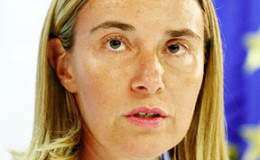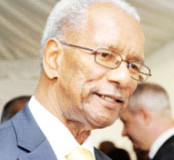The region needs to address the role of civil society
At the last count, something like 619 regional trade agreements had been notified to the World Trade Organization (WTO).
At the last count, something like 619 regional trade agreements had been notified to the World Trade Organization (WTO).

In Europe a far-reaching and multi-faceted policy review is underway that is likely to result in a significant change in European priorities.
Imagine this. You, a partner or family member is working overseas.
On December 12 in Paris, France’s Foreign Minister, Laurent Fabius, brought to a close the UN climate change conference, COP 21.“I
Over the last few years Venezuela has through its PetroCaribe oil and development facility provided an economic lifeline for most Caribbean Basin economies; extending support in a manner that no other country has been willing to replicate.
Each year the elected leaders of Britain’s overseas territories (OTs) gather from around the world to meet with British ministers in London.
In September a special summit of the United Nations General Assembly held in New York saw 193 nations agree to seventeen Sustainable Development Goals (SDGs).Their
In the last few weeks the European Commission (EC) has made available two discussion documents that will change Europe’s future relationship with the Caribbean and Latin America.

A little over a week ago the British parliamentarian, Sir Eric Pickles – a cabinet member until May of this year and a former Chairman of the Conservative Party – told the London Guardian that the British Prime Minister, David Cameron, was determined to have the BVI and the Cayman Islands adopt public registers of beneficial ownership either “through legislation, guidance or naked pressure”.
In a matter of days the European Commission will launch a communication (policy paper) on the options for post-Cotonou arrangements with the ACP, the grouping that brings together 79 African, Caribbean and Pacific nations.
The Caribbean has just eighteen congressional working days from Sunday September 20 to try to have the US Congress or the District of Colombia address an act naming seventeen Caribbean nations as ‘tax havens’.
A few days ago in London, the Bahamas Prime Minister, Perry Christie, told a meeting organised by Caribbean Export that the region needed a new formula to maximise investment.
Mutual incomprehension perhaps best sums up the way in which the anglophone Caribbean and the Dominican Republic presently regard one another.
Part 1 In the last seven months much has been written about Cuba and the reopening of full diplomatic relations with the US.

When Caricom Heads of Government met in Barbados at the start of the month, their proceedings were dominated by a discussion of Venezuela’s unjustified claim to much of Guyana’s coastline and most of its exclusive economic zone, and to the marine jurisdictions of a number of other Caribbean member states.

It is probably true to say that the average person has little idea what international financial institutions like the World Bank or International Monetary Fund (IMF) do, beyond knowing that they are in some way responsible for having governments impose tough austerity measures and conditions in return for their support.

The maritime security of the Caribbean is an issue not often written about.

In a few weeks’ time President Obama will make a one-day visit to Jamaica.

Part 2 A few days ago, Dong Xiaojun, the Chinese Ambassador in Jamaica, wrote a commentary on the recent meetings held in Beijing between China and the Foreign Ministers of the Community of Latin American and Caribbean States (CELAC); the political grouping that includes all of the nations in the Americas other than the US and Canada, and the dependent territories The Ambassador made clear that for China the meeting on January 8 and 9 was “of milestone significance and profound influence.”

The announcement in mid-December by President Obama and President Castro that Cuba and the US are moving to normalise relations has resulted in speculation about what this may mean for the Caribbean’s tourism sector.
The ePaper edition, on the Web & in stores for Android, iPhone & iPad.
Included free with your web subscription. Learn more.